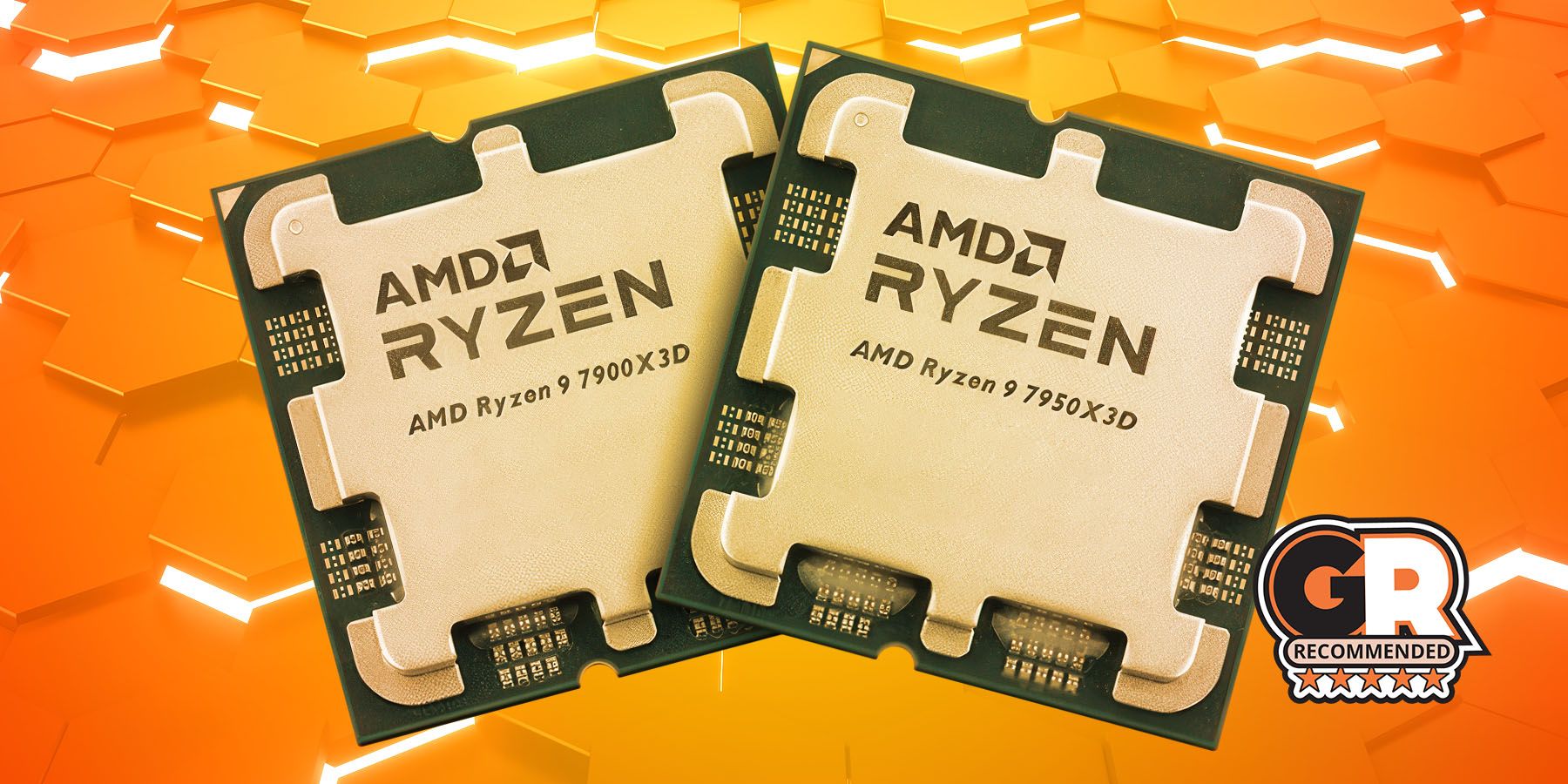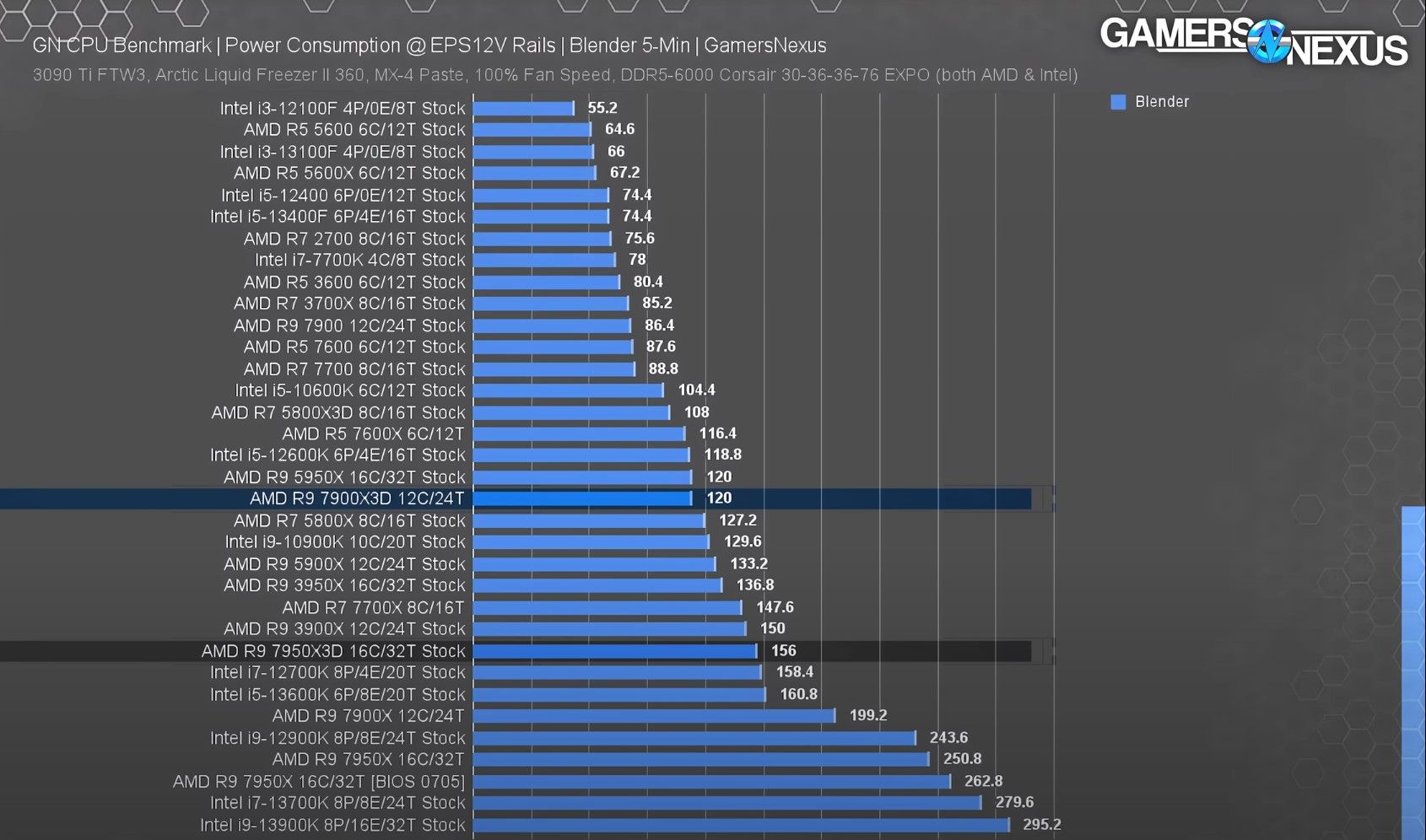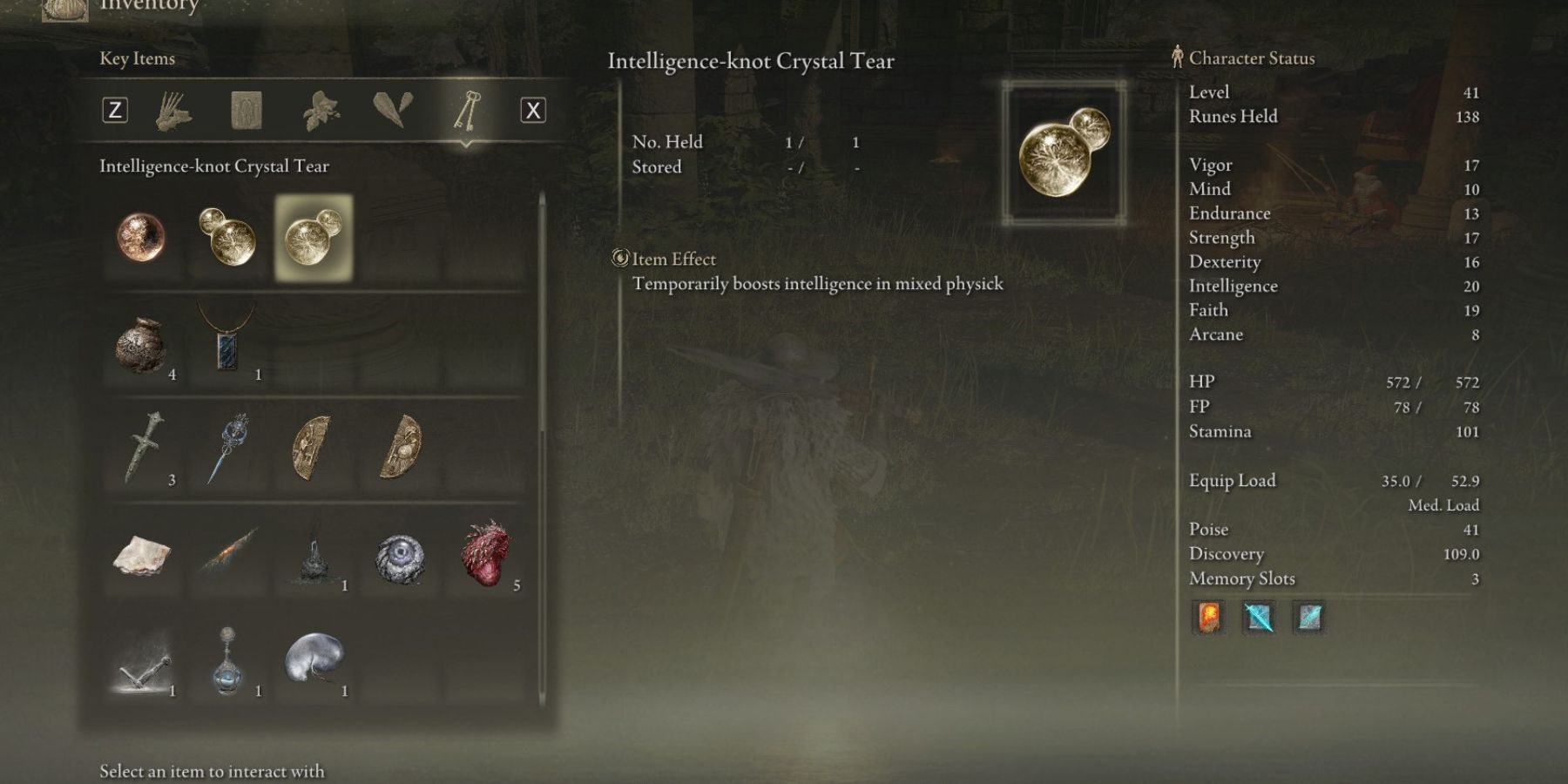AMD shook up the high-end CPU market in 2023 when it dropped the 3D V-Cache enabled 16-core (8+8), 32-thread Ryzen 9 7950X3D, and the 12-core (6+6), 24-thread 7900X3D. This, followed by the AMD Ryzen 7 7800X3D which continues to dominate gaming benchmarks in 2024, cemented its lead as it refocused some of its Zen 4-based chips towards gaming even as they continue to offer outstanding efficiency compared to the competition.
Reviewers and hardware enthusiasts have responded in turn, attempting to get performance in games similar to the octa-core Ryzen 7 7800X3D on the 7950X3D and trying to eke out more power from the mid-range Ryzen 9 7900X3D, which often happens to be on sale at various times during the year. That does beg the obvious question: Is the 7900X3D worth it? What conditions make it a worthy purchase versus the 7900X3D?
AMD’s Ryzen 9 7950X3D vs Ryzen 9 7950X
Find out which AMD Ryzen is right for you!
AMD Ryzen™ 9 7950X3D 16-Core, 32-Thread Desktop Processor
The Best AMD CPU For Gaming And Productivity
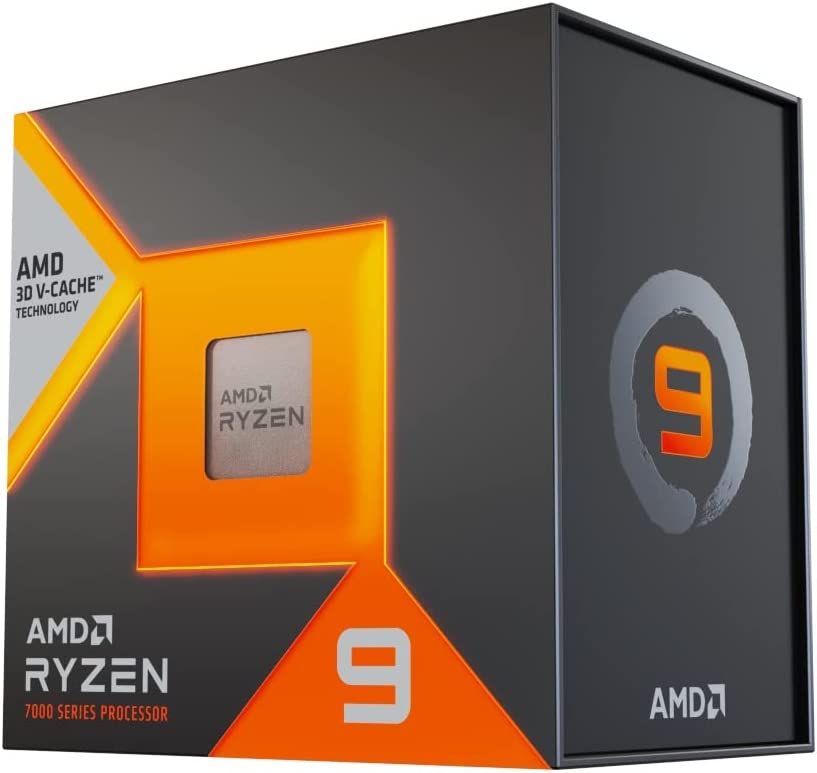
AMD Ryzen™ 9 7950X3D 16-Core, 32-Thread Desktop Processor
AMD’s Zen 4-enabled X3D Flagship
The Pricey King of The Hill
$649 $699 Save $50
The 16-core, 32-thread desktop AMD Ryzen 9 7950X3D processor is AMD’s answer to a resurgent Intel 13th generation processor lineup as it attempts to wrest back the gaming crown with the same technology that made the last generation 5800X3D such a powerful CPU.
With 128MB of L3 cache on offer, the Ryzen 9 7950X3D leverages its 3D V-Cache muscle in gaming as well as its powerful new Zen 4-based cores in productivity to make for a potent enthusiast-grade CPU in the offing.
- Socket
- AMD AM5
- Brand
- AMD
- TDP
- 120W
- Cores
- 16
- Threads
- 32
- iGPU
- Yes, RDNA 2
- L3 Cache
- 128MB
- Base Clock
- 4.2 GHz
- Boost Clock
- 5.7 GHz
- The best blend of gaming and productivity performance
- Offers much better multi-core performance
- Currently trades at a sub-$100 discount over MSRP
- Somewhat expensive
- Sometimes slower than its non-X3D counterpart
- Is often slower than the Ryzen 7 7800X3D from AMD
The AMD Ryzen™ 9 7950X3D 16-Core, 32-thread Desktop Processor is the latest and greatest from AMD, and it decimates all the game-related benchmarks thrown at it by emerging as a juggernaut in terms of average FPS. While it does at times suffer some hitches at the 1% lows in FPS counts, that much can be expected due to limited optimization by certain games in multiple test suites given how bleeding-edge the 7950X3D is – the chip, not the underlying technology, which made its debut over 2 years ago on the 5800X3D.
It essentially removes its older sibling, the 7950X from contention altogether for a gaming CPU top slot by outperforming it and the competing Intel Core i9 14900K/KS CPUs extensively when it comes to gaming benchmarks while holding its own for the most part when it comes to productivity benchmarks, making it a viable alternative to most other mainstream CPUs that it seeks to supplant, even in 2024.
When it comes to price, the 7950X3D might be a costly affair, but so are the chips it competes against and often beats in benchmarks conclusively. While the Intel Core i9 14900K is priced slightly lower than the 7950X3D by a small margin, its higher clocked, 6.2 GHz touting Core i9 14900KS sibling (which is a cherry-picked 14900K) seems to be significantly higher priced than AMD’s offering, making the Zen 4-based 3D V-Cache-enabled product sit snuggly between the two, albeit at a price tag that is closer to the more mainstream 14900K than its recently-released enthusiast-grade ‘KS’ alternative.
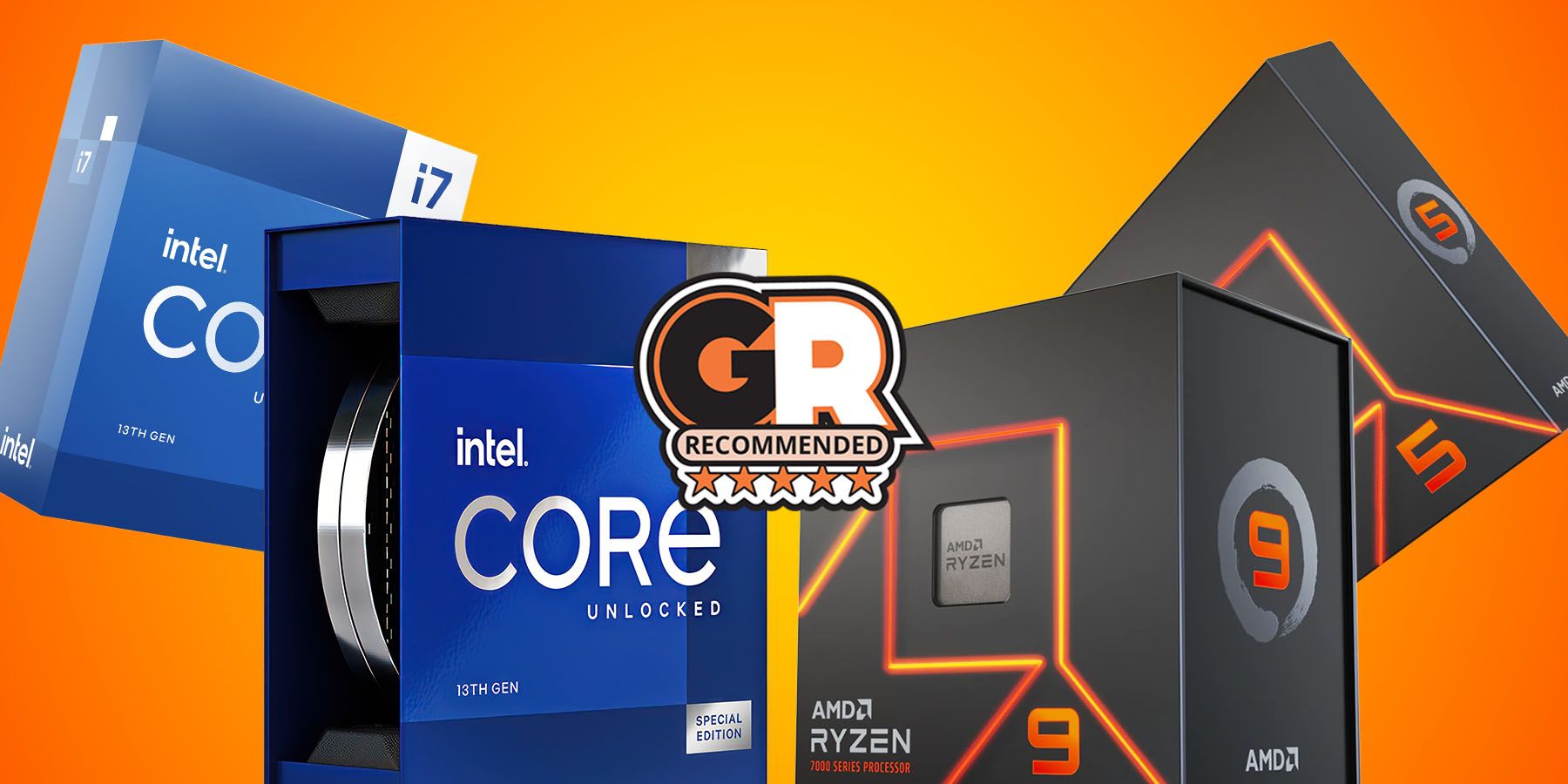
The Best CPUs in 2024
Intel, AMD, and now even ARM CPU’s are competing for the best CPU spot in gaming. How you game and what your budget is will determine this decision.
AMD Ryzen™ 9 7900X3D 12-Core, 24-Thread Desktop Processor
A Fast But Questionable Upgrade?
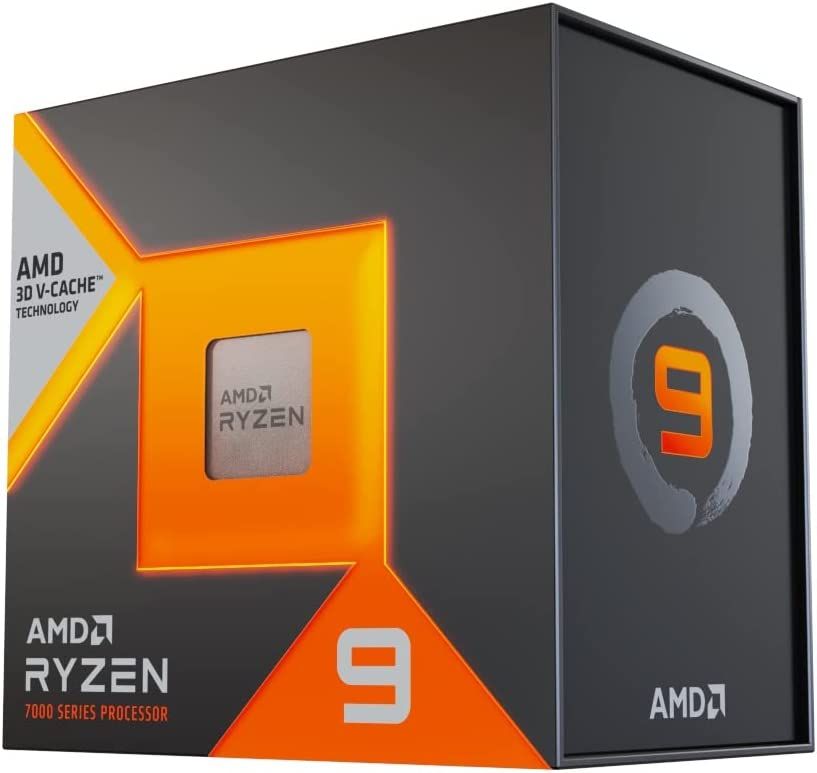
AMD Ryzen™ 9 7900X3D 12-Core, 24-Thread Desktop Processor
Well-Balanced Zen 4 Power
The Perpetual Runnerup Sans 4 Cores
The AMD Ryzen™ 9 7900X3D 12-Core, 24-Thread Desktop Processor is the 12-core version of its X3D refresh across 3 of the Ryzen 7000 series processors that see it stack 3D V-Cache on one of the two 6-core CCUs in a bid to repeat the success that was the 5800X3D on a resurgent Ryzen 7000 lineup.
- Socket
- AM5
- Brand
- AMD
- TDP
- 120W
- Cores
- 12
- Threads
- 24
- iGPU
- Yes, RDNA 2
- L3 Cache
- 128MB
- Base Clock
- 4.4GHz
- Boost Clock
- 5.6GHz
- Extremely power efficient versus Intel’s offerings
- Offers better value for money per core versus its other siblings
- Has a lower MSRP than the Ryzen 9 7950X3D
- Has the same amount of L3 Cache as the 7950X3D
- Slower than both the 7950X3D and 7800X3D
The AMD Ryzen™ 9 7900X3D 12-Core, 24-Thread Desktop Processor, with 4 additional cores versus yester-year’s 5800X3D does however have a unique configuration. It comes with 2 sets of CCX units which house 6 cores each, a curious configuration that we are unlikely to see any time soon; for context, the lower-end Ryzen 7 7800X3D comes with a single 8-core CCX. The 7900X3D is a processor that does trade at a premium versus its predecessor; one can find the 7900X trading for as low as or under $400 at some retailers, while the 7900X3D can often be found at similar price levels, but at a marginally higher cost than its predecessors.
More importantly, the 7900X3D seems to be in a weird spot when it comes to performance, which could also explain the lower amount of hype surrounding it. For instance, in gaming, it is noticeably faster than the 7900X, but at times slower or within spitting distance of the latest Intel Core i9-14900k, which can already be found trading at a discount versus its 3D V-Cache enabled 12-core rival. It is essentially, a product that is just “good enough” but doesn’t have enough to justify recommending it over both, the higher-end 7950X3D or the Intel Core i9 (sans efficiency concerns).
Efficiency
Efficiency is a harder yardstick to apply to what is essentially 2 of the same processor cores (but 12 vs 16) in what becomes a numbers game in tandem with exactly the same amount of L3 cache and the same amount of L2 cache per core (1MB). While all AMD chips in the X3D lineup, including the yet-unreleased 7800X3D, have a TDP of 120W, the total power draw these chips can push exceeds this handily in the case of the 7950X3D.
Based on the chart obtained from GN above, it is clear that while Power Package Tracking (PPT) for the 7950X3D sits at 156W, the 7900X3D with 25% fewer cores just pushes slightly above its watts-per-core numbers when under load. This could probably be discounted by the fact that other parts of the chip also consume power, such as the IGP and the extended V-Cache in all its glory.
All in, the 7950X3D edges the 7900X3D in efficiency ever so slightly in benchmarks, but both essentially decimate Intel’s top-end offerings for the same with relative ease. This is despite having one-size-fits-all cores in Zen 4 as the tuned chips using V-Cache are too strong versus Intel’s offerings when it comes to raw power consumption or performance per watt, depending on how users want to go about it.
Value Proposition
The 7900X3D seems to be more of a confused stop-gap measure than a product that would be a particular winner in any specific category. That is not to say it does not have its uses. It is an extremely power-efficient chip that trades at $100 lower than the king of the hill, the Ryzen 9 7950X3D while having single-digit performance tradeoffs as a result for gaming; it is however significantly slower due to it having 25% fewer cores.
The 7900X3D, due to its lower core count, is conclusively not the performance or efficiency leader here, but one could question if it was ever intended to be so. It seems to be just a chip that exists to serve a niche market segment of users who does not want to splurge on the Ryzen 9 7950X3D, but want to benefit from the gains of the 3D V-Cache’s gaming prowess and better efficiency on offer.
For what it is worth, at MSRP, even the 7950X3D is not exactly great value for money either. At $700, it seems to be a bragging-rights purchase for enthusiasts, or otherwise meant for those who desire bleeding-edge gaming performance, top-tier power efficiency in a desktop, or perhaps the best of both worlds. One can, however, be more understanding of purchases of the 7950X3D: it is the number one gaming chip to get, being the most efficient 16-core (and up) processor money can buy right now.
Revisiting Value In 2024: AMD Ryzen 9 7950X3D vs 7900X3D
Prices for both the AMD Ryzen 9 CPUs have been revised downward considerably due to a mix of softening demand, the release of the Ryzen 7 7800X3D, and Intel pushing out more competitive (and slightly discounted) 14th-generation CPUs. The Ryzen 9 7900X3D seems to have been a bigger beneficiary of such price movements, with a sub-$200 price markdown on the CPU bringing it within spitting distance of a discounted Ryzen 7 7800X3D CPU.
This makes the heavily price-adjusted Ryzen 9 7900X3D a much more value-centric buy than it had been in 2023. Users needing extra CPU power under the hood, but who also aren’t looking to spend on the more expensive 7950X3D, should reconsider the Ryzen 9 7900X3D as a viable compromise closer to the octa-core 7800X3D. On the other end of the spectrum, the Ryzen 9 7950X3D sees a price cut of over $100 as it continues to feel pressure from a resurgent Intel Core i9 14900K that offers higher clocks and a discounted price in a bid to keep AMD’s Zen-based juggernaut from taking market share from Team Blue in the coveted enthusiast-grade segment of the market.
This means that while both the Ryzen 9 7950X3D and the Ryzen 9 7900X3D offer better value for money for users still on the fence in 2024, the competition also delivers on a similar promise making it a very competitive enthusiast-grade CPU market that allows users to pick up a deeply discounted CPU at the higher-end of the spectrum as well as in the mid-range segment alike.
AMD’s Take On The AMD Ryzen 7 7800X3D Versus The Ryzen 9 CPUs
To quote AMD’s staff before the launch of the octa-core alternative to the Ryzen 9 CPUs: “When the Ryzen 7 7800X3D arrives in a few weeks, it will be the eight-core CPU of choice for gamers who don’t need extra cores and just want maximum gaming performance.”
This stands true in 2024 based on benchmarks that regularly tell the same story: for those who want to create and game, the 7950X3D is a no-brainer. For those who want more than 8, but less than 16 cores while looking to save $100, it seems the 7900X3D is an interesting choice to consider, but is not recommended outright versus the other Ryzen 7000 series X3D CPUs.
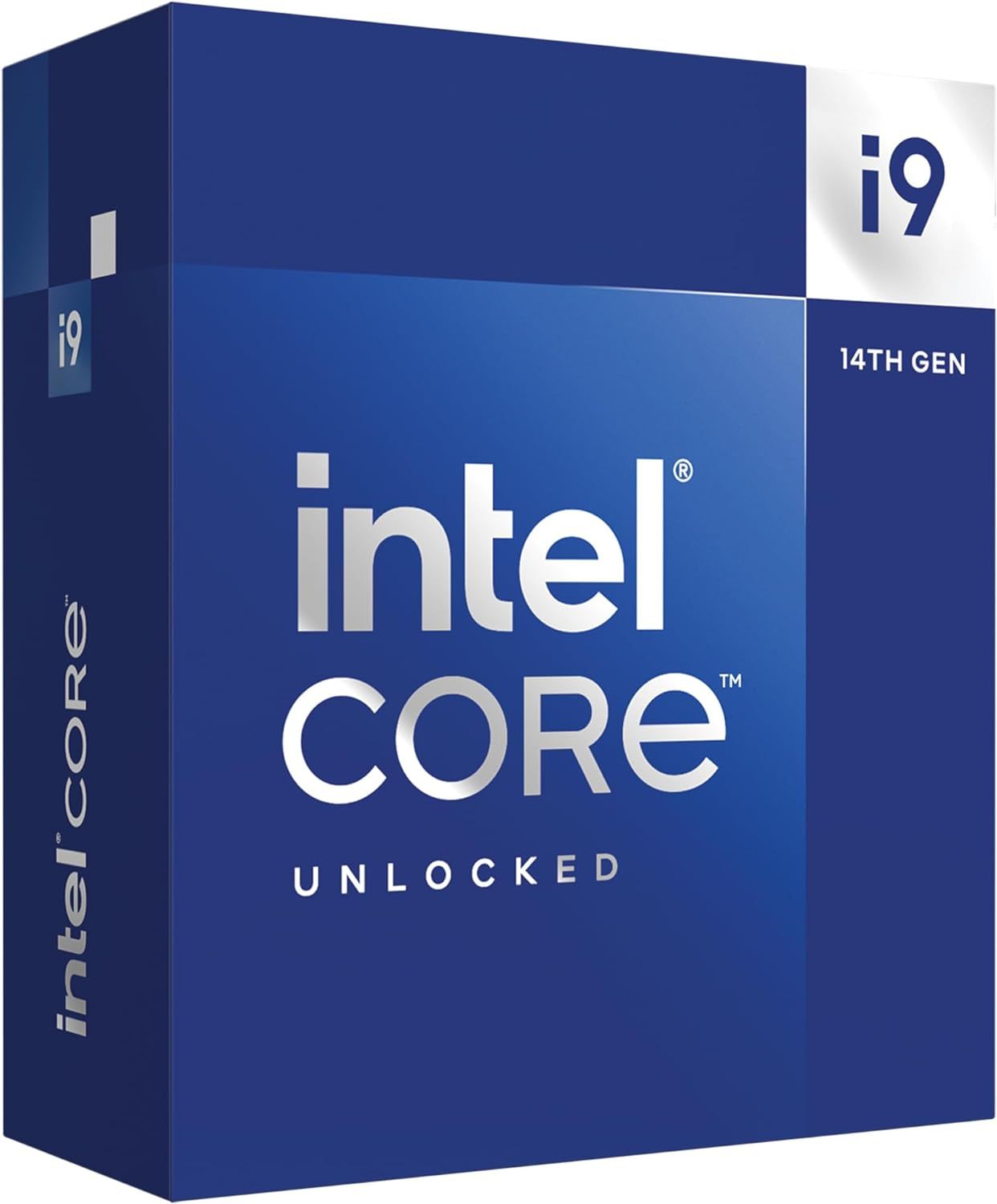
Intel Core i9 14900K Vs AMD Ryzen 7 7800X3D: Is The Refresh Enough?
How does Intel’s fastest CPU to date stack up against AMD’s best gaming CPU post-launch?
Conclusion
The consumer market seems to agree with this sentiment; The 7950X3D is selling out far faster than its smaller 12-core sibling at launch. It is also being scalped at the time of writing for anywhere between a 20 to 40% premium on top of its MSRP. All-in, if given the choice, we feel the 7950X3D just makes more sense right now as a purchase. It gives users the fastest processor they can splurge on for gaming, is just a tad more efficient in most benchmarks, and having 4 extra cores can’t really hurt for a $100 jump in price.
For those that can wait or are on the fence about a prospective purchase, one would preach waiting for the 7800X3D which will retail at a much more affordable $449 price tag and probably be the weapon of choice for gamers that go the AMD upgrade route or are looking for a worthy successor for the sweet price: performance that the aging but not quite dead yet AM4-based Ryzen 7 5800X3D offers.
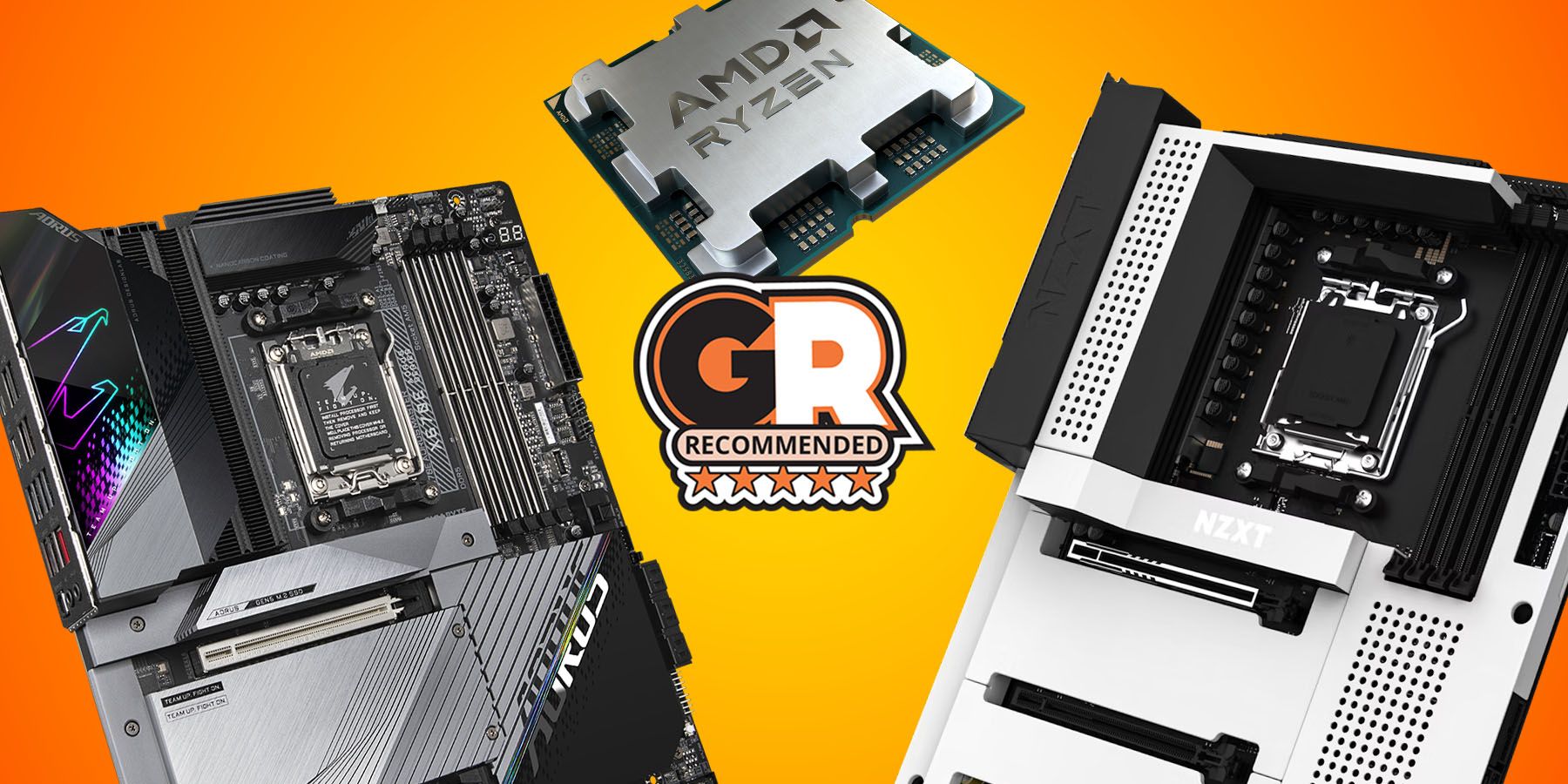
The Best Motherboards For AMD Ryzen 9 7950X3D CPUs
The AMD Ryzen 9 7950X3D is the new king of the hill for gaming CPUs, but what is the best motherboard to pair it with as part of an upgrade?
FAQ
Q: Is the 7950X3D the fastest CPU for gaming right now?
The AMD Ryzen 7 7800X3D is the fastest processor for gaming currently with the AMD Ryzen 9 7950X3D and the Intel Core i9 14900K following closely behind on most benchmarks.
Q: What is the next upgrade from a 5800X or a 5800X3D?
The AMD Ryzen 7 7800X3D is the next logical upgrade from the Ryzen 5000 series as it targets and delivers value to gamers even as it delivers better performance than AMD’s Ryzen 9 CPUs in most titles.
Q: Who should get the 7900X3D or the 7950X3D?
AMD suggests that content creators who are also gamers are the target market for the X3D lineup’s Ryzen 9 chip offerings.

